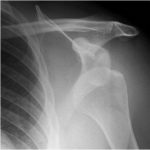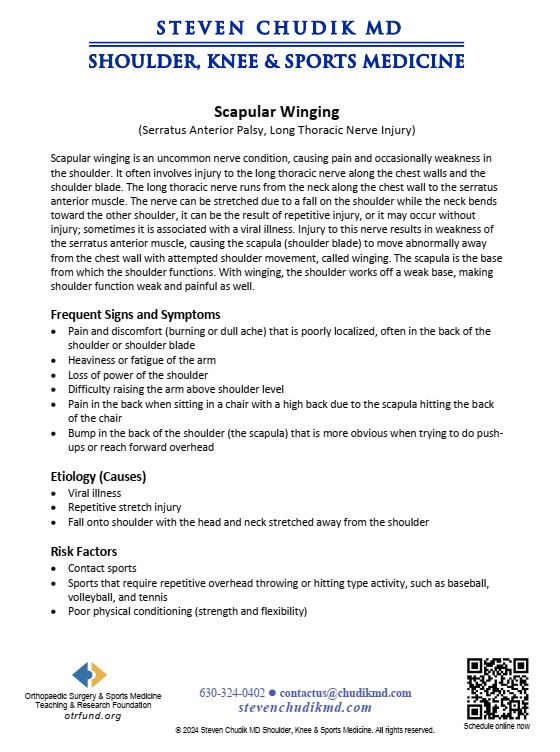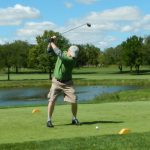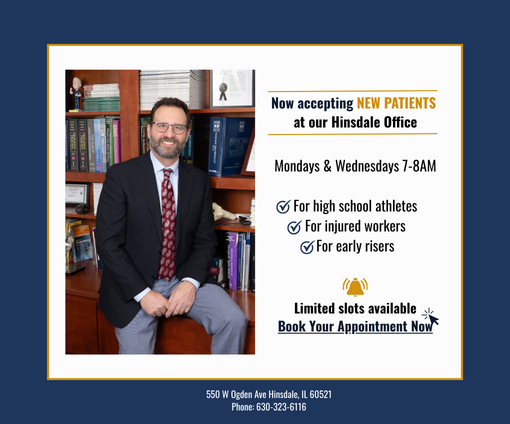 Arthroscopic expert, Dr. Steven Chudik, cites prompt treatment, thorough evaluation and physical therapy as key factors to successful return from shoulder dislocation injury
Arthroscopic expert, Dr. Steven Chudik, cites prompt treatment, thorough evaluation and physical therapy as key factors to successful return from shoulder dislocation injury
Home / Shoulder / Shoulder Surgery / Scapular Winging
Scapular winging is an uncommon nerve condition, causing pain and occasionally weakness in the shoulder. It involves injury to the long thoracic nerve in the back near the shoulder blade. The long thoracic nerve runs from the neck along the chest wall to the serratus anterior muscle. The nerve can be stretched due to a fall on the shoulder while the neck bends toward the other shoulder, it can be the result of repetitive injury, or it may occur without injury; sometimes it is associated with a viral illness. Injury to this nerve results in weakness of the serratus anterior muscle, causing the shoulder blade (scapula) to pull away from the chest wall with attempted shoulder movement, called winging. The scapula is the base from which the shoulder functions. With winging, the shoulder works off a weak base, making shoulder function weak as well.
Initial treatment consists of rest from the offending activity and nonsteroidal anti-inflammatory medications to help reduce inflammation and pain. The nerve usually spontaneously recovers, although this may take up to 12 to 24 months. Performing shoulder range-of-motion exercises while waiting for nerve recovery is of paramount importance. Referral to a physical therapist or an athletic trainer may be recommended for further treatment, including ultrasound and other modalities. If this conservative treatment is not successful, surgery may be necessary to replace the lost function of the serratus anterior muscle with the function of another muscle. This surgery is considered a salvage operation; it is not meant to allow the athlete to return to sports, just to allow pain-free activities of daily living.
Learn More
 Daily commute gives active businessman, avid golfer an unexpected ride
Daily commute gives active businessman, avid golfer an unexpected ride
Dr Steven Chudik founded OTRF in 2007 to keep people active and healthy through unbiased education and research. Click to learn about OTRF’s free programs, educational opportunities and ways to participate with the nonprofit foundation.
1010 Executive Ct, Suite 250
Westmont, Illinois 60559
Phone: 630-324-0402
Fax: 630-920-2382
(New Patients)
550 W Ogden Ave
Hinsdale, IL 60521
Phone: 630-323-6116
Fax: 630-920-2382
4700 Gilbert Ave, Suite 51
Western Springs, Illinois 60558
Phone: 630-324-0402
Fax: 630-920-2382

© 2025 © 2019 Copyright Steven Chudik MD, All Rights Reserved.

